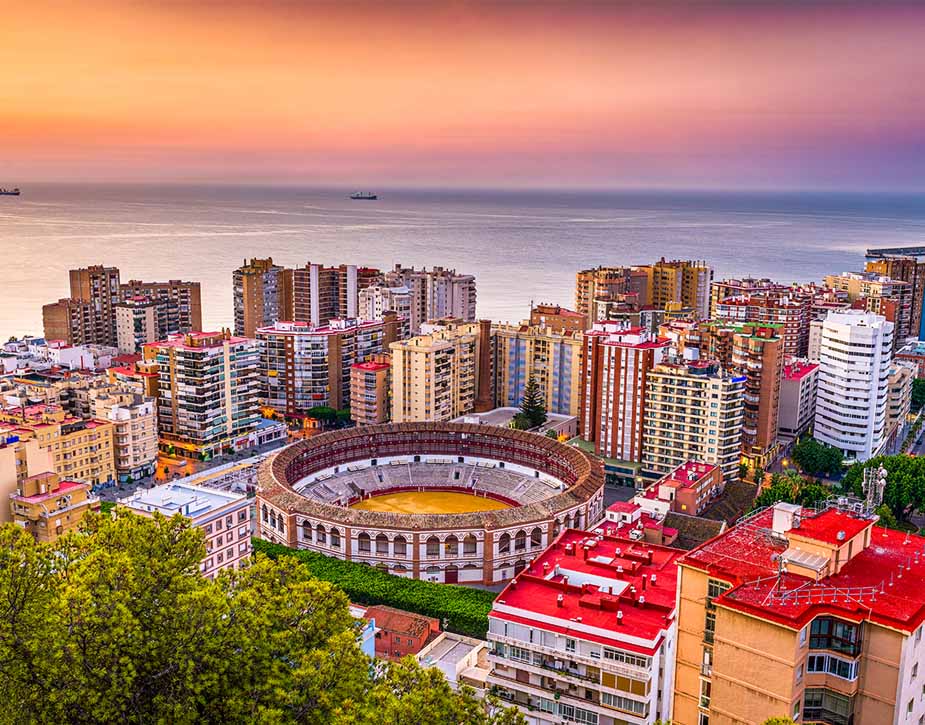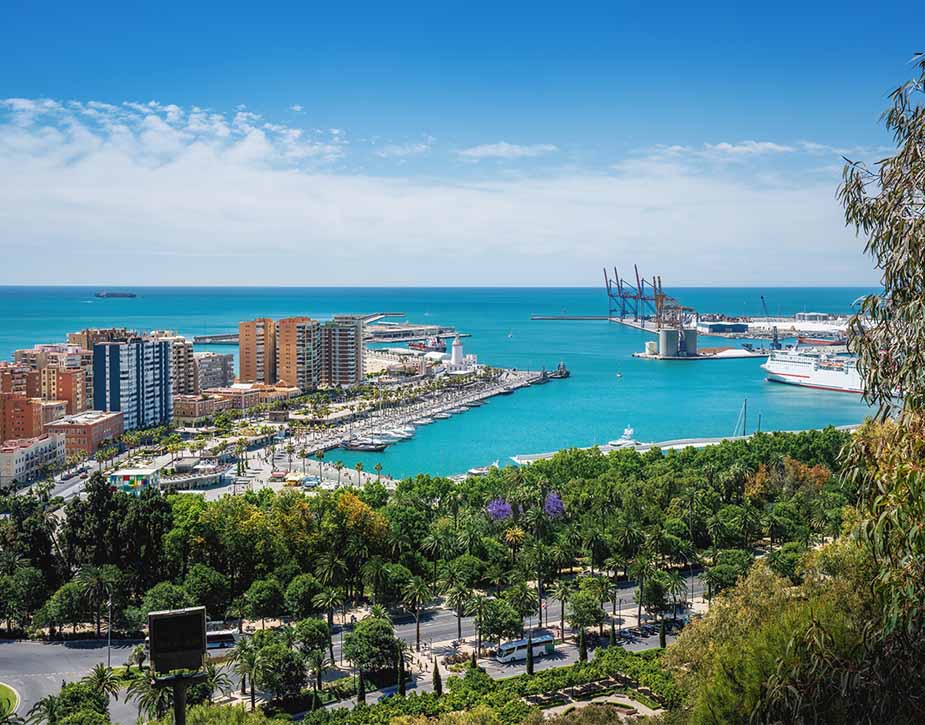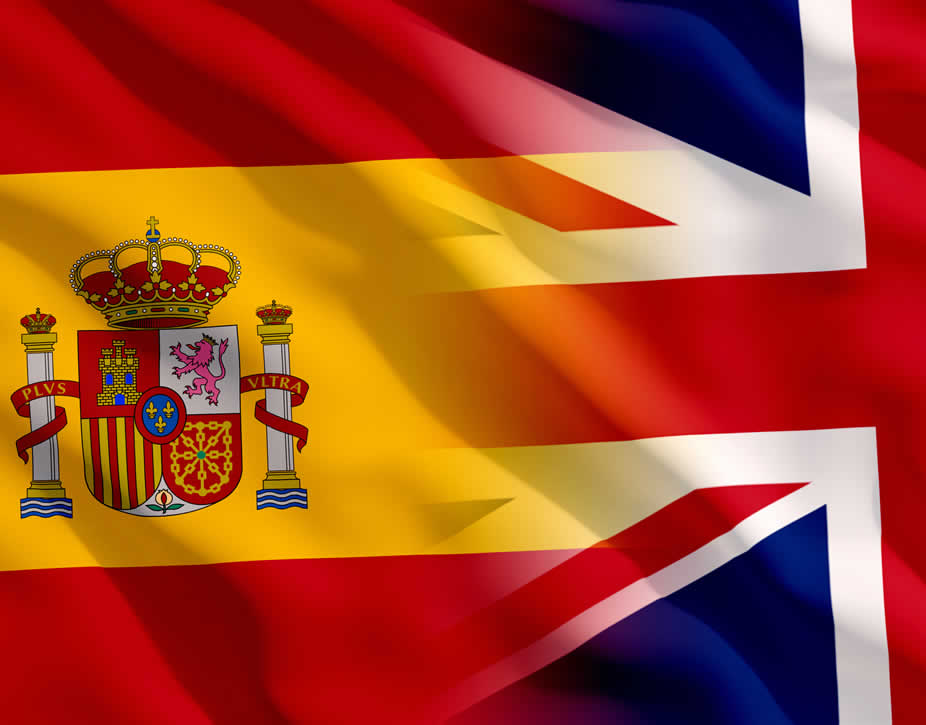Moving from the UK to Spain’s sun-soaked Costa del Sol—or making the reverse move back to the UK—can be a fulfilling lifestyle change. But beyond the excitement of a warmer climate and new surroundings, this kind of relocation involves careful planning, especially in the post-Brexit era. In this guide, we cover everything from international removal services and sample pricing to the paperwork you’ll need when relocating to Spain or returning to the UK, plus important insights into climate, cost of living, and what retirees moving to Spain after Brexit should know. Whether you’re arranging removals to Spain, removals from Spain to the UK, or simply considering making the move yourself, this post will help you plan with confidence.
Moving to Spain - all you need to know - guide by MyCheapRemovals
Moving to Spain – this decision has been made by more than 300,000 British citizens according to 2011 EU census data. If you thinking about joining them here at MyCheapRemovals we can help you with our cost-effective Removals to Spain services.
The most popular places are Madrid, Barcelona, Alicante, San Sebastian, Malaga, Valencia and Seville.
Here at MyCheapRemovals, you can find an instant quote for removal service but also read through where you can find example quotes that help you get the idea.
Watch this space if you are interested in comparing living costs in Spain vs. the UK.
Are you considering a move from Manchester to Barcelona (or vice versa) and wondering how the cost of living compares today? In 2022, a MyCheapRemovals blog post provided a detailed comparison of living costs in these two vibrant cities. Since then, inflation and economic changes have shifted some of those costs. This 2025 update revisits each expense category – Food, Housing, Clothes, Transportation, Personal Care, and Entertainment – to see where prices stand now and how they’ve changed since 2022. We’ll highlight current average prices in both cities, note increases or decreases from 2022, and clearly point out which city is more affordable in each category.
The allure of Spain – from its sun-drenched Mediterranean beaches and vibrant cities to its rich cultural heritage – has long captivated British nationals seeking a change of scenery. In fact, as of 2023, an estimated 284,000 Britons were living in Spain, many of them retirees drawn by the warmer climate and lower cost of living. Moving to Spain with a British passport is certainly achievable, but post-Brexit realities mean the process involves more than packing your bags and booking a flight. Unlike EU citizens (such as the Irish, who benefit from freedom of movement), UK passport holders now face extra steps – notably visa and residency requirements – before they can call Spain home. This comprehensive guide focuses on British citizens and breaks down the key considerations, from legal paperwork to cultural integration, to help turn your Iberian dream into reality.
Investing in Spanish property from the UK has long been popular among Britons seeking sunshine, affordability, and a better quality of life. Whether you’re a retiree planning to retire in Spain or a family looking for a holiday home (and future retirement haven), Spain’s property market offers enticing opportunities. As a trusted international removals company with years of experience assisting UK-to-Spain moves, we’ve compiled this comprehensive guide. We’ll walk you through why to invest in Spain, the legal and tax implications for UK buyers, how to handle financing, the best regions to consider, investment strategies, and more. Our goal is to help you make informed decisions and ensure your Spanish property dream is a success.
Introduction
Spain has captured the hearts of UK citizens for decades – from sun-soaked summers on the Costa del Sol to leisurely winters in the Canaries. Post-Brexit, UK families buying property in Spain are navigating new rules but remain undeterred. In fact, Britons are still one of the largest groups of foreign property buyers in Spain, drawn by the warm climate, vibrant culture, and attractive property prices. This guide is designed for British retirees and families, offering a clear roadmap to Spanish property investment. We’ll cover everything from the big-picture benefits of owning Spanish real estate to nitty-gritty details like taxes, mortgages, and avoiding common pitfalls.
Whether you’re envisioning a peaceful retirement village by the Mediterranean or a savvy investment property to rent out, our friendly professional advice will equip you with the knowledge to proceed confidently. By the end, you’ll understand the steps involved and have a handy checklist to turn your Spanish property plans into reality.
For British expats moving to Spain or moving to Bulgaria, the cost of living is a major consideration. Both Bulgaria and Spain offer a lower cost of living than the UK on average. Still, there are significant differences between settling in Sofia versus Spain’s popular cities like Barcelona and Malaga. This detailed comparison breaks down typical monthly expenses – from housing and utilities to food, transportation, healthcare, and entertainment – to help retirees and remote workers budget for a new life abroad. We’ve included example prices (in local currency) from authoritative sources such as Numbeo and Expatistan to illustrate the differences. Read on for a side-by-side look at living costs in Sofia, Barcelona, and Malaga, complete with tables and tips for expat life.
Teaching English in Spain: Why Being a Native Speaker Isn’t Always Enough
Teaching English in Spain has long been a desirable endeavor for many, especially native English speakers drawn to the country’s rich culture and the increasing demand for English proficiency. However, the assumption that being a native speaker automatically qualifies one for teaching positions in Spain is a misconception. This article delves into the qualifications required, the legal landscape, and the ongoing debate between native and non-native English teachers in Spain, incorporating insights from various discussions and experiences.
Are you a UK citizen planning to retire after Brexit? With the uncertainties surrounding the UK’s departure from the European Union, it’s only natural to have concerns about how it might affect your retirement plans. Luckily, there are still plenty of attractive destinations for UK citizens to consider for their post-Brexit retirement.
In this article, we will explore the top 6 retirement destinations for UK citizens after Brexit. We’ll take into account factors such as climate, cost of living, healthcare, quality of life, and access to amenities and services. Whether you are looking for a sunny beachside town, a bustling city with cultural attractions, or a tranquil countryside retreat, our list has something for everyone.
Introduction to Moving to Málaga, Spain
Discovering Málaga
Málaga, a vibrant city on Spain’s Costa del Sol, is a prime destination for those seeking a blend of rich history, modern amenities, and a sunny Mediterranean climate. As one of the oldest cities in Europe, founded by the Phoenicians around 770 BC, Málaga offers a unique mix of ancient and contemporary experiences. Whether you’re attracted to its historic landmarks, beautiful beaches, or thriving cultural scene, Málaga is a city that captivates and inspires. For many, the idea of moving to Málaga symbolizes a fresh start in an idyllic setting.
Relocating to a new country comes with a myriad of decisions, and none are more crucial than those concerning your children’s education. As many families plan their removals to Spain, particularly from the UK, the choice between an international school and a Spanish state school becomes a pivotal concern.
The allure of Spain, with its sun-drenched beaches, rich cultural heritage, and vibrant lifestyle, calls out to many looking for a change of scenery. For Irish citizens, the journey to this enchanting land is made smoother by the benefits provided by the European Union’s freedom of movement. This privilege allows those holding an Irish passport to live and work in Spain without the need for a visa or work permit, making “moving to Spain” more than just a dream for many. However, the process involves more than just packing your bags and booking a flight, especially if you’re planning a long-term stay.
Discovering Almería: The Hidden Jewel of Spain’s Southeast
Almería, a city where the sun generously bestows its warmth, offers a unique blend of serene beaches, rich history, and vibrant city life. Navigating Almería’s charming streets is most enjoyable on foot, as its narrow lanes and bustling promenades invite you to explore at a leisurely pace. Despite the city’s compact size, its bus network efficiently connects you to the surrounding coastal resorts, ensuring that the beauty of Almería is always within reach. For those looking to delve deeper into Spain, Almería serves as a gateway with its direct train connections to major cities like Madrid and Barcelona.
Buying Property in Spain: Navigating the 90-Day Rule
The allure of owning a property in Spain, with its sun-soaked beaches, vibrant culture, and warm climate, is undeniable for many. However, for those considering purchasing a home in Spain but planning to spend only 90 days a year there, it’s crucial to weigh the pros and cons carefully. This discussion delves into various aspects, from capital appreciation and rental opportunities to legal considerations and lifestyle impacts, offering a comprehensive overview for potential property buyers.
Contemplating a move to the picturesque Mijas or planning a return to the UK? Our weekly removals to Mijas service from the UK ensures that whether it’s a comprehensive home shift or just a few cherished possessions, your relocation needs are met with exceptional care and efficiency. At MyCheapRemovals, we understand that every move is unique, which is why we offer tailored options ranging from full UK-Spain moves to transporting a single item, ensuring your transition is seamless and devoid of any undue stress.
With our transparent costs, you’re promised a moving experience that’s both dependable and economical. Thanks to our shared-load services, you can benefit from reduced expenses due to cost-sharing while still enjoying the famed MyCheapRemovals standard of service excellence. Whether your journey is taking you from Mijas to the UK or vice versa, we have the resources and expertise to ensure a move that’s as tranquil as Mijas itself.
Please note that this post is a guide on how to register a UK car in Spain; MyCheapRemovals does not provide registration services.
Getting behind the wheel of a UK car on the sun-kissed roads of Spain necessitates compliance with the country’s stringent vehicle registration protocols. Moving to Spain does not mean you have to part ways with your cherished vehicle. However, to register a UK car in Spain, one must navigate through the nuances of Spain’s traffic laws. Whether you’re a non-resident holidaymaker or a new Spanish resident, understanding the legal obligations of UK car import is paramount to ensure no unwelcome bumps disrupt your driving experience in this vibrant nation. Ensuring the legality of your Spain vehicle registration is not merely adhering to the rules; it’s about charting the course for a hassle-free journey on the Spanish tarmac.
The Pros and Cons of Bringing Your UK Car to Spain: An Expatriate’s Guide
Moving to a new country presents various challenges, especially when it comes to transportation. For many British expatriates relocating to Spain, one major decision revolves around whether to bring their UK car along or purchase a new one locally. Let’s delve into the advantages and disadvantages of bringing your UK car to Spain.
MyCheapRemovalas provides international removal services across the whole of Europe.
One of the popular routes is from Spain to Germany. People wish to move to Germany for different reasons, to look for a place with a higher quality of life, to benefit from an amazing education system and study without spending thousands in tuition fees, or to enjoy beer and currywurst and explore new culture. Bearing in mind that Germany is the EU’s largest economy and is rated highly as a place to grow old it’s definitely worth considering for living.
How much will it cost to move from Spain to Germany?
According to Twitter Barcelona is the fourth most popular city for selfies. It’s rather a fun fact, but we are about something slightly different. If you moving to Spain specifically to Barcelona you may struggle to quickly find a price for such a service. Lucky you, you found this page. MyCheapRemovals can send you an instant removal quote for removal from the UK to any country in Europe.
Removals to Barcelona in Spain – prices
Yes – in Spain. Apparently, there is more – check here if you are interested, how many Barcelonas in the world.
Moving to Barcelona from the UK doesn’t have to be expensive. With MyCheapRemoval is the cheapest option. Here are example prices for 5m3 up to 300 kg load:
- London to Barcelona – from £829
- Manchester to Barcelona – from £939
- Plymouth to Barcelona – from £829
- Newcastle upon Tyne to Barcelona – from only £959
- Edinburgh to Barcelona – from £949
What are the estimated moving costs from the UK to Spain?
The cost of your removal to Spain depends on two main factors: the volume of your belongings and the distance between your old and new homes.
In terms of volume, we offer two types of removals: small (5 and 10 cubic meters of volume) and large (15, 20 and 30 cubic meters).
As a working emigrant, thinking about your retirement is an essential step toward guaranteeing a comfortable future. In order to have a comfortable and secure retirement, it’s important to have a plan and vision of possible options. So whether you’re already working in Spain or are curious about retiring as an emigrant in Spain, it’ll pay off to be well-prepared.
If you are moving to Spain, you can use this article as a guide to the layers of the Spanish pension system, the requirements to become eligible for it, the benefits of having a pension plan, taxes and deductions, and the documents you need to apply for a pension.
When planning to move to Spain, one of the most important aspects to consider is pensions. If you are considering a move to Spain, you should familiarize yourself with the pension system in the country so that you can make the most of your retirement savings.
MyCheapRemovals provide cost-effective international removals services across the whole of Europe. Although we mainly concentrate on helping to move from the UK, we also provide removals to the UK. If you planning to move to the United Kingdom from Spain and wondering about the costs we prepared a little price guide that help you to prepare better for your journey. And as always with MyCheapRemovals you don’t need to break the bank. We are still the cheapest option on the market:
- Customer pre-packing goods service – this saves a lot of working man-hours, but our driver still will help you with loading at the collection point and unloading at the delivery address – 2 hours in total,
- We have our own fleet of more than 40 vans and lorries if required for big removal
- We don’t use a “middle man” – it’s only our customer service and our drivers, so no additional commissions or hidden fees.
MyCheapRemovals Reviews
- Justyna who organised the removals to Spain was exemplary in how she kept me up to date and answered all my questions in a very timely manner. Marek, the driver, was extremely helpful... Read More
- I had a fantastic experience with My Cheap Removals and couldn’t be happier with their service. From start to finish, everything was incredibly smooth and well organised. Communicat... Read More
- Great experience moving home from London to Barcelona. Justyna who organised the logistics was incredibly patient and kind with us. We had to change the date so many times, but nothin... Read More






















